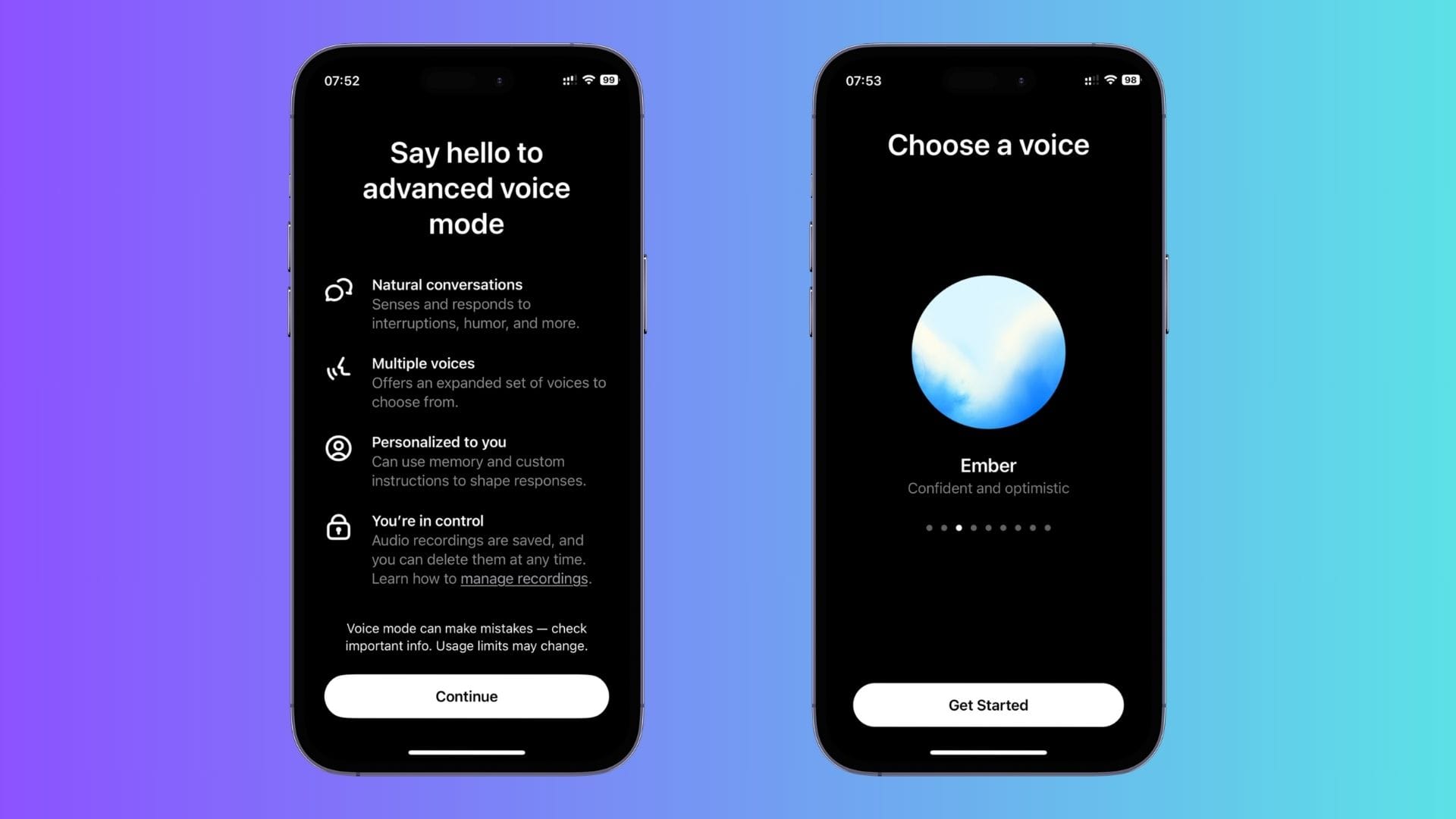Exploring ChatGPT's New Voice Features: More Hype than Substance?
ChatGPT's voice upgrade adds more emotion and interactivity, but I question if these extras are diluting the core strengths I value most: straightforward answers

Recently, OpenAI released advanced voice capabilities for ChatGPT, and I decided to give it a try. Living in the Netherlands, I hit a small snag—the feature wasn’t available here, possibly due to privacy restrictions in the EU. So, I used a VPN to bypass this limitation and finally got access.
Emotional Voices: A Gimmick or a Feature?
The experience left me with mixed feelings. One of the big selling points is that the voices now carry more emotion.
But, to be honest, I wasn’t particularly impressed by that. I don’t need an AI that sounds empathetic—I need one that gives me clear, concise answers.
Adding emotional tone to responses feels more like a gimmick than a practical improvement. Another notable feature is that you can interrupt the AI while it's speaking, which is indeed a step forward.
It makes the interaction feel a little more natural. But overall, these updates aren't the game-changer I was hoping for.

Platform Inconsistencies
What really struck me, though, is the discontinuity across platforms. On the Mac app, which I also access via VPN, I’m still getting the older voice version. It’s confusing and inconsistent, and it honestly detracts from the experience.
OpenAI seems to struggle with these inconsistencies, which only adds to my impression that they aren't quite there yet as a UX-focused company.
For now, I keep seeing ChatGPT as more of an engine than a completed machine. It serves as a generic solution for my questions, which I often refine or finish in other apps.
Canvas and Memory Features
I was, however, impressed by the memory feature for now. It shows a lot of promise, though I will need to see how it behaves as it grows and handles more complex information.
About Canvas, I am still in doubt a bit. To be honest, I did not have the bandwidth to test it in depth. I'm not a programmer, but I use ChatGPT with articles—for instance, this one—and I’m already growing a bit more enthusiastic about it.

Third-Party Opportunities
It made me realise that trying to cater to every need with a single tool is a tall order, and perhaps OpenAI's current approach isn't the best at doing so.
I believe there’s a lot of room for third-party suppliers to take these foundational capabilities and build more user-focused solutions that align better with specific use cases.
For now, I’m left feeling that while the tech is impressive in scope, it’s not quite hitting the mark for what I personally need—clear, reliable, and straightforward user experiences without the extra noise.
The voice capabilities of OpenAI are impressive as it is. They are now also available as Realtime API. Pretty expensive in daily use but with a great potential to enhance your digital offering.



